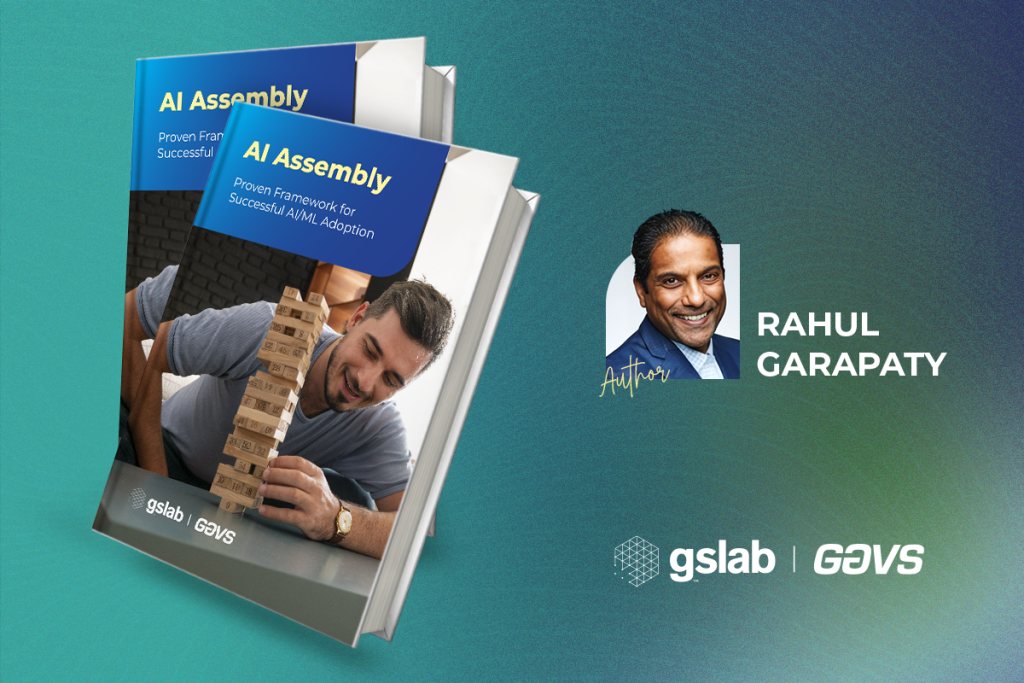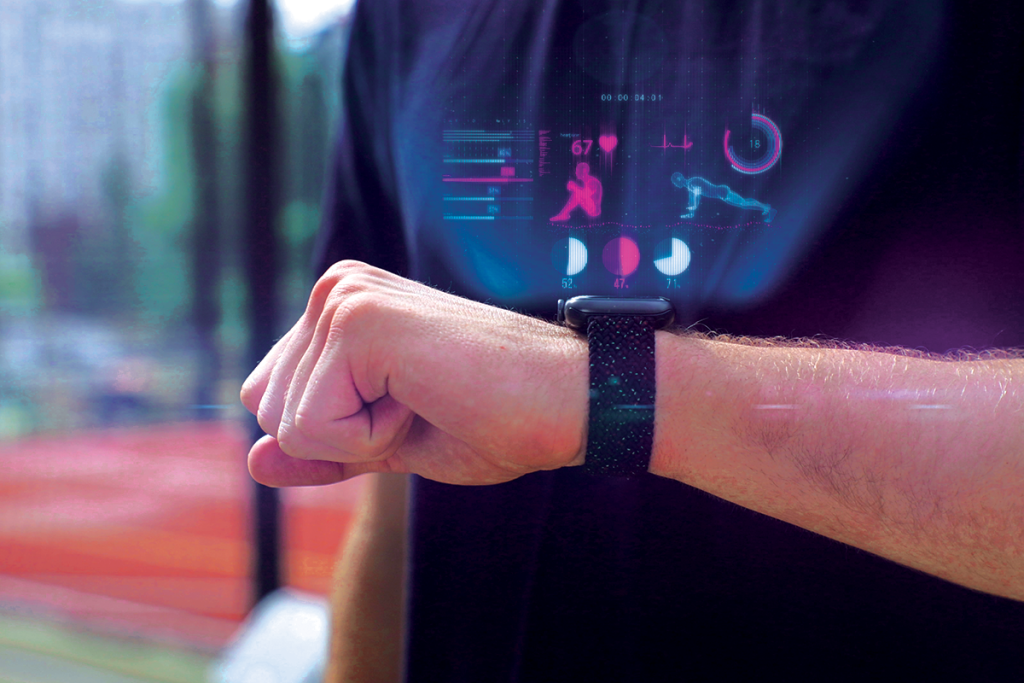Digital Product Engineering combined with the power of AI is proving to be an accelerator of innovation for enterprises. It is helping businesses maximize value and improve customer centricity through rapid insight generation, data-driven decision-making, and effective product delivery.
GS Lab | GAVS hosted a webinar in association with Sonde Health, a health technology company with a voice-enabled symptom detection and monitoring platform for chronic and mental health conditions. The panel discussed the entire product development journey, architecting a healthcare AI product, intricacies of the Data Science pipeline, and more.
Mr. Mandar Gadre – Director of Engineering (IoT) at GS Lab | GAVS moderated the session. The first panelist for the session was Mr. Yogendra Jain – CTO of Sonde Health, a Boston-based company focused on preventative healthcare; the second panelist was Mr. Srinath Krishnamurthy – Principal Architect at GS Lab | GAVS, with 18 years of experience primarily in data mining, predictive modeling, and analytics across various verticals; and the third panelist was Mr. Swapnil Warkar – Principal Architect at GS Lab | GAVS with over 17 years of experience as a software developer.
Architecting a Showcase App
Developing a new product, especially in the healthcare sector, requires a lot of planning and understanding of the domain. Sonde Health created a new concept in the healthcare screening and monitoring space. The aim was to have a product that screens respiratory health for cognitive impairments and other diseases early – in real time using signal processing techniques with voice activity detection. The product and internal tools focused on five aspects – data capturing tools, signal processing modeling, showcase apps for iOS and Android, API/SDK, and embedded devices support.
Challenges in Building a Healthcare Product during the Pandemic
The sample size for data collection went from 3000 subjects per month to zero during the pandemic. It was cumbersome to collect data amid the chaos and life loss. However, the company built a respiratory model and tested it against COVID-19 antigen kits. The model picked up over 75 sensitivities and outperformed the existing kits. Consequently, the model was used to help companies screen their employees returning for work when lockdowns were eased.
Things to Consider while Building a Healthcare App
Serverless architecture to manage cost – Server usage would vary significantly depending on the product and its users. Taking a serverless approach reduces the burden of budget. This also allows the development team to expand the scope of the product to newer areas in the future.
Identifying suitable methods to collect user data is an important point to consider. Sometimes, users might not share the necessary data. In the case of Sonde Health’s product, a 30-second voice sample was required to monitor respiratory health. However, users were not meeting this requirement, thus making it difficult to collect reliable data. To mitigate this challenge, Sonde Health collaborated with Qualcomm to embed the vision in every cell phone.
Data privacy is one of the critical areas of concern and consideration while building apps that collect data. Apart from meeting regulatory requirements, having the right algorithms and technology in place is vital to collect such private data. The purpose of the algorithm should be to separate the relevant data points from voice samples or any other form of data collection and process them without storing them in the server. This improves customer faith and ensures the server does not store unnecessary data.
Screening App vs Diagnostic App – The Difference
People are often confused between a screening app and a diagnostic app. A screening app collects user data and presents them in an easily understandable format. A diagnostics app takes the data and makes inferences for medical diagnoses. A screening app does not recommend treatments or medications based on the data collected as it is beyond the realm of its work. However, these apps can be integrated with third-party apps to use the data points collected for further diagnoses and tests.
GS Lab | GAVS periodically organizes insightful sessions with our tech leaders and industry thought leaders. While this is only a quick summary, the full session is available here. You can find all our other webinar recordings at https://www.gslab.com/webinars.
GS Lab | GAVS helps companies drive innovation at record speed by leveraging R&D driven product engineering and development, with deep understanding of core and emerging technologies. Having developed 350+ technology products and solutions – many of which are first-of-their-kind, we are confident about adding measurable value to your organization. To find out how, please visit https://www.gslab.com/product-engineering-and-development/.




